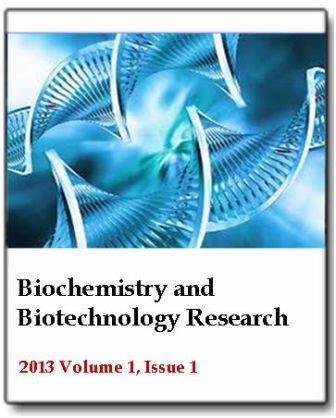Nephro-protective potency of natural honey: Report of preliminary study in white Wistar albino rats
O. H. Oyefuga, M. A. Alabi, G. Idowu, T. R. Fagbohun, K. T. Odufuwa, O. S. Iquot and T. F. AshidiBiotechnology and Biochemistry Research
Published: July 4 2013
Volume 1, Issue 1
Pages 1-7
Abstract
Over the last 20 years, man has been exposed to an array of chemicals in form of medicines, industrial waste and a variety of other naturally occurring substances which adversely affect the kidney. Food additives, majorly flavorings and sweeteners, had been indicted as some of these natural/artificial occurring substances which causes nephro-toxicity but their adjunct role in food cannot be undermine; as such, there is need for a possible food flavourant/sweetener which will have close to zero nephrotoxic effect on the kidney and if possibly serve a nephro-protective role, thus helping the kidney to mop up the array of chemicals that it is daily expose to from other sources, with possibility of reducing acute injury and renal changes that might lead to end-stage renal failure and renal malignancies when toxicity goes unchecked. Thirty-six weaned rats were used in this research work. They were grouped into 3 groups (12 rats each) randomly distributed without any prejudice. Group A (control) was fed with normal diet and water was supplied ad libitum. Group B (short term) was fed with normal diet and water was supplied ad libitum too, in addition, an oral administration of honey at a daily dosage of 250 mg/kg of rats was done for 21 days (3 weeks). Group C (long term) was also fed with normal diet and water was equally supplied ad libitum, in addition, an oral administration of honey at a daily dosage of 250 mg/kg of rats was done for 12 weeks. The rats were sacrificed at the end of the 12th week, the various kidney toxicity markers were assayed for on the serum while the residual organ (kidney) was done on their respective kidney homogenates. A high and significantly different activities (P < 0.05) was observed on the serum fraction of the group A (control); however, an interestingly low and significant value was observed in both the plasma and kidney homogenates of group C (long term honey administration) rats with a close to zero toxicity value observed in its residual toxicity profiling, thus suggesting that oral honey consumption/administration in Wistar rats is greatly beneficial as an alternate food sweetener with a potentiality of exerting a nephro-protective effect.
Keywords: Honey, kidney, nephro-protective, functional food.
Full Text PDF
